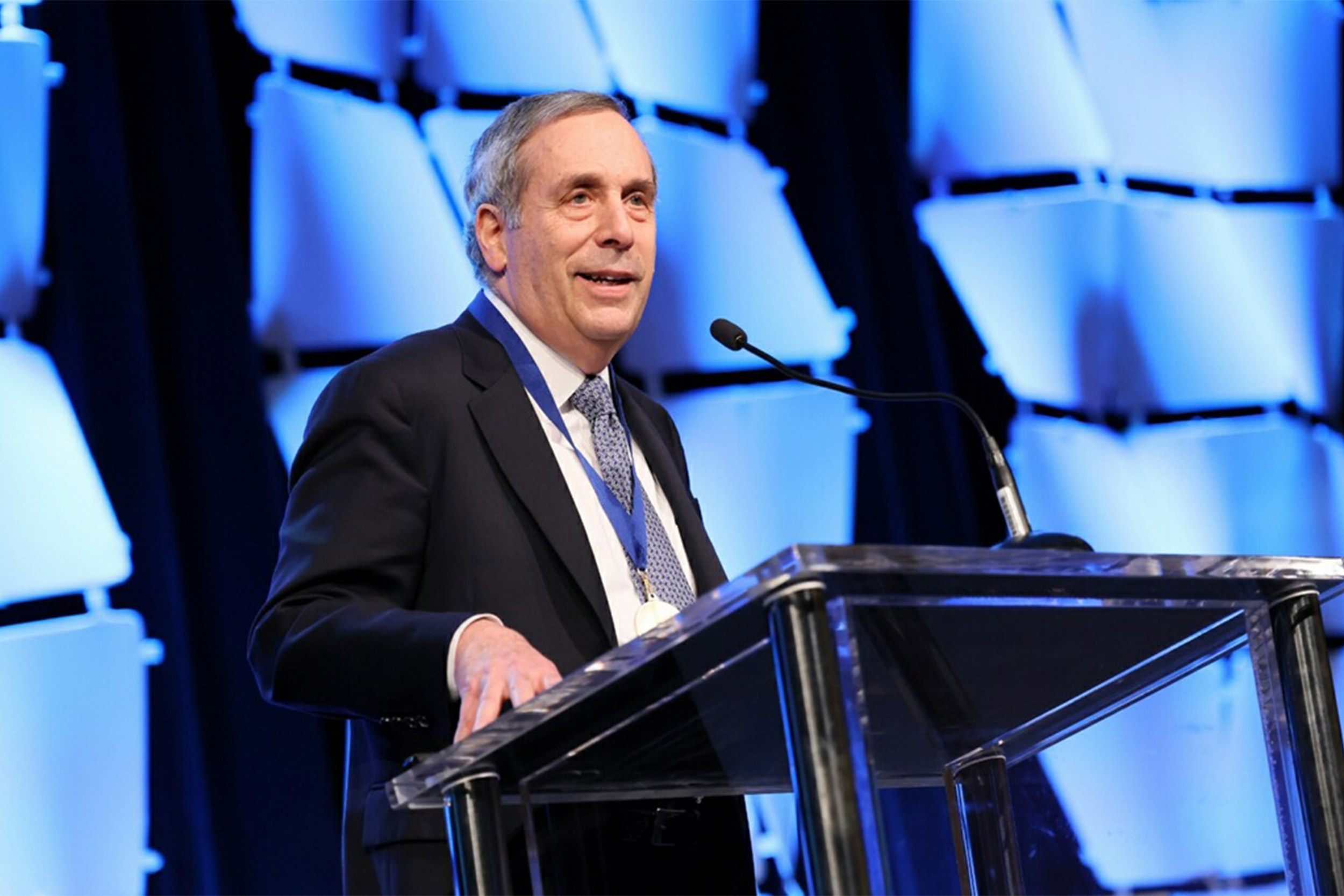
President Lawrence Bacow, who was recognized with the American Council on Education’s Lifetime Achievement Award, gave the keynote address.
Bacow calls for immigration reform, backs policies to aid educational exchange
President says flow of workers, students bolsters U.S. economy, brings innovation, helps export democratic values
Harvard President Lawrence Bacow called for U.S. immigration reform and voiced strong support in particular for policies that encourage international student and scholarly exchange in a speech last week before a gathering of American higher education leaders in Washington, D.C.
Returning to a theme that has been a signature of his presidency — and reflecting on his own life experiences — Bacow said that immigration and education had made his career possible and raised concerns about proposed restrictions on immigration.
“Given my personal background, I have found the last 10 or so years of paralysis in our Capitol around immigration reform deeply disturbing and depressing. Given my professional background, I have found them detrimental,” Bacow said during his keynote Atwell Lecture at this year’s meeting of the American Council on Education, where he was also recognized with the organization’s Lifetime Achievement Award.
“Efforts to restrict immigration have a profound impact on how each of our institutions is able to fulfill its mission,” he said.
“We limit immigration at our peril. Why? Because immigration furthers our national interest. And because immigration defines our national identity.”
Bacow, the son of Eastern European refugees, has been lauded for his actions on immigration during his presidency. He successfully fought to secure entry for an admitted Harvard student from Lebanon who was initially sent home without being able to enter the U.S.
He also led an effort during the COVID crisis to block guidance from the U.S. Immigration and Customs Enforcement that would have required international students to leave the country if their college or university shifted to online instruction. After Harvard and MIT sued, the government rescinded the directive, and an estimated one million international students avoided being forced to return to their home countries amidst a global pandemic.
Bacow said a more effective approach to immigration policy is vital to U.S. competitiveness.
“America thrives when the world’s best join us to pursue research that fuels discovery and innovation,” he told the audience of more than 600 people. “International students challenge our most talented domestic students in the classroom, and these international students bring another dimension of diversity to our campuses. They often seek to build families and careers in the U.S. after graduation, but — even if they leave this country — some of our values go with them, and their relationships with classmates persist.”
“Unfortunately, our longstanding pre-eminence as a top destination is not assured,” he said.
“Our competitors aspire to attract these same students with governments offering more favorable pathways to permanent residency and financial incentives for top faculty, students, and staff.
“So, immigration is truly in the national interest. Higher education helps to serve this national interest by attracting and educating students from around the world. And those same students make our campuses more interesting and more lively in countless ways.”
The Council’s Lifetime Achievement Award recognizes college and university presidents and chancellors who have dedicated their careers to championing the value of higher education and the good it does for our students and society.
“There is no better advocate for his students, the institutions he has served, or for American higher education than Larry Bacow,” said Council President Ted Mitchell. “Larry’s own life story exemplifies the unparalleled power of higher education to transform lives, institutions, and communities.”
In closing the speech, Bacow urged greater government support for community colleges and minority-serving institutions, calling those who work at such institutions “heroes” who are “fulfilling a responsibility to those who have already made it here, to those who want an opportunity to participate in what has always been called the American Dream.”




